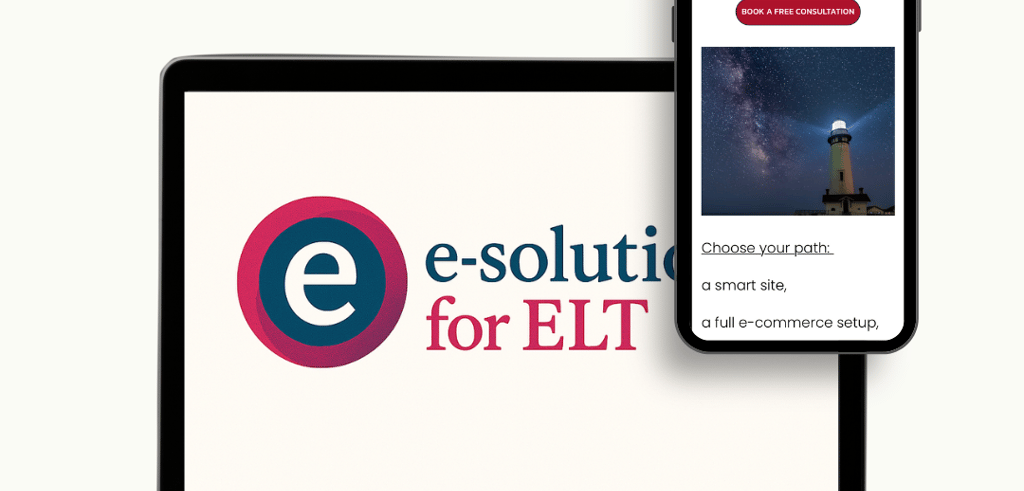What it actually takes to create a website
Let’s address the pixelated elephant in the room: building a website is not something that just happens. It’s not a few clicks and a magic template. Unless your expectations are on par with a PowerPoint slide, there’s real work behind every functional, professional website.
Renata Kucharska
5/16/20253 min read


Planning & Strategy (5-10 hours, including meetings and sessions on what the client wants/needs
Before anything is actually written, a lot of thinking happens. Goals, audience, brand identity, sitemap structure—it all gets sorted here. Skipping this phase is like building IKEA furniture without looking at the instructions: possible, but you'll regret it.
This stage is crucial because it sets the foundation. A site that’s strategic from the start saves time, avoids chaos, and actually does what it’s meant to do—whether that’s selling, booking or informing.
Design (10–50 hours)
This is where your brand comes to life. It’s not just picking colors and slapping on a logo. We’re talking layout choices, visual hierarchy, UX design, mobile responsiveness, and accessibility.
Good design doesn't just look nice. It feels intuitive, reflects your brand, and helps visitors find what they’re looking for without friction. Templates can only take you so far—and they usually don’t take you anywhere good.
This phase also means: "Oh, sorry, the logo's just changed." and "I'd like this image next to the read more button to show a book with a starry sky in the background" and "I want the buttons to turn neon yellow when hovered over" kind of messages from clients. And it's fine. It's got to happen before the website goes live. But, let's not forget - each and every action leading to this button turning neon yellow, takes time, attention and expertise. It's not just clicking.
Development (20–200+ hours)
Depending on the complexity of your site (simple brochure vs. full e-commerce), development time can vary wildly.
This includes:
Building pages and templates
Responsive development for mobile/tablet/desktop
Custom features (e.g. booking systems, product filtering, membership areas)
Performance optimization and basic SEO
Security setup
The fact that the website scrolling doesn't go on forever, doesn't mean that it takes 5 minutes to build it. Oh, and remember that there are in fact 3 different versions of the website to be optimized: desktop, tablet and a mobile phone one. Sometimes there are only two, depending on what editor is used but it still only adds to the amount of work.
Testing & Launch (5–20 hours)
Testing includes:
Cross-browser and device testing
Form validation
Link checks
Speed optimization
Fixing all the weird things that nobody expected in the first place.
Training
Websites don’t stay perfect forever. Plugins need updates. Tech shifts. Hackers evolve. You’ll probably want to update your content eventually. That's where training I provide comes in handy. And it takes time to prepare the training videos/presentation and actually train you to be the admin and maintain the basics of your shiny and new website.
So…what is a reasonable amount for this kind of work?
Let’s do the maths. A full website might take 60 to 150 hours, depending on scope. The rate now (Beta finished yesterday) varies between £16 and £40 per hour —which, for comparison, is what many tradespeople charge to unclog your sink. This is a skilled, technical, creative profession. A custom, strategic, well-built website is an asset, not an expense. For many businesses, that £2,500 website can pay for itself in the first few months through improved conversions, better customer experience, and stronger branding.
Let's sum it up
You wouldn’t expect someone to build your house, paint it, decorate it, check everything, install additional locks, create and implement energy-saving system so that you can access it from any place and install your plumbing for the price of a takeout meal. The same logic applies here.
A website is your business’s home online—and if you want it to work properly, it’s worth investing in the time and expertise it takes to get it right.
So no, £2,500 isn’t excessive. It’s actually pretty typical. What’s excessive is thinking you can “just whip up” a proper website over a weekend.
One last thought, I think ELT professionals, especially those offering contact hours can relate to: it's ALWAYS 1:1 work. Building a website can't happen in groups, sorry. So if you think about the services you provide 1:1 as luxurious (hope you do!), think about your website designer and the service the same way.
